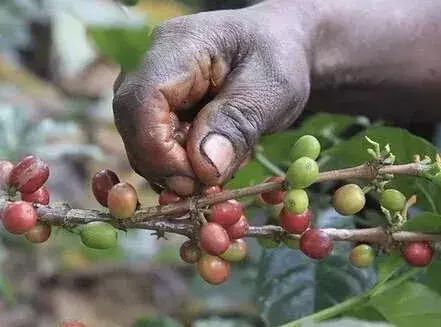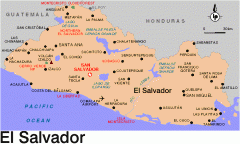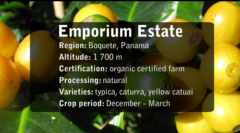Coffee Trading system in Ethiopia | ECX Trading system

For professional baristas, please follow the coffee workshop (Wechat official account cafe_style)
Ethiopia's ECX trading system is the savior of Ethiopia's commercial bean farmers, but it is a headache for the third wave of boutique coffee to require traceability. Let's learn about the ecx trading system, which is very important to Ethiopia's producing areas.
Ethiopia's infrastructure is underdeveloped, lacks a physical market system, and is extremely underfunded, and the total handling fees and transaction risks of agricultural products are very high before they reach the real marketable market. this has isolated most Ethiopian agricultural products in the global market, with only 1/3 of production successfully flowing on the market. And buyers and sellers also prefer to do business with people they are already familiar with to avoid fraud or arrears, so they have to rely on on-site inspection to ensure quality and quantity, which in turn leads to higher costs. the selling price is naturally higher. For farmers, they can only cooperate with neighboring businessmen or sell in the only known market, and it is impossible to negotiate a better price. As grain is sold again and again, it needs to be resold about four or five times from farmers to consumers, and the packaging is changed every time it changes hands, even across Africa.
In 2008, the Ethiopian government promoted the ECX trading system, the aim is to establish a common trading market, so that all farmers, traders, exporters and consumers can use ECX to choose and buy their favorite products, but also to change the above-mentioned Ethiopian market conditions, but also to make Ethiopian agricultural products more international. The purpose of this article is to give you a better understanding of the operation, advantages and disadvantages of the ECX trading system.
ECX's full name is Ethiopian Commodities Exchange, the Ethiopian Commodity Exchange. Ethiopia's main economic source is crop exports, and it is good to have a bumper harvest every year, but prices are always kept low, and farmers make little profit relative to the harvest costs invested by farmers. So ECX commercializes all kinds of grains, including sesame seeds, legumes, corn, wheat and, most importantly, coffee. Ensure that farmers' crops are sold at a reasonable price and that farmers receive payment immediately. The move also integrates the entire ecosystem of the grain market, from warehousing, grain grading, trade to payment. ECX also emphasizes the availability of information, and farmers can learn about trade prices and local delivery points through dedicated lines.
The way ECX deals with coffee goes something like this: first, farmers sell coffee berries to local washing plants, some of which pay higher prices for better quality coffee berries. The washing plant will send the processed raw beans to the warehouse of the delivery station. (take Yega Snow Coffee area as an example, the delivery station is Dila.) raw beans will be labeled according to the producing area and graded according to the quality and test results of raw beans. The higher the overall quality, the higher the selling price. Traders buy raw beans through ECX, but at most, the packaging will only mark the producing areas and villages, such as "Yegasorphine: Konga" (Yirgacheffe: Konga).
The ECX system does simplify the supply chain and become efficient, ensuring that farmers can receive payment immediately, are not as exploited as before, become aware of international market prices, and begin to have an international mindset. But at the same time, this system also obliterates the traceability of coffee, which is very important in specialty and boutique markets, because the same coffee will have different flavors because of different producing areas, different co-operatives and different processing plants.
As a result, there are also some coffee cooperatives that bypass the ECX trading system and sell themselves instead. The coffee sold through the co-operatives can be traced back to the source, or even to which peasant family it came from, which can be regarded as helping farmers create a new market.
Important Notice :
前街咖啡 FrontStreet Coffee has moved to new addredd:
FrontStreet Coffee Address: 315,Donghua East Road,GuangZhou
Tel:020 38364473
- Prev

Coffee Manor introduction: what's the difference between the three Hope Manors in El Salvador and Colombia?
Professional baristas Please follow the Coffee Workshop (Wechat official account cafe_style) to introduce the Hope Estate of Guatamala, Panama and Mexico last time. There are also a lot of farmland called Hope in El Salvador. This time we will take a look at the Hope Manor of the Magaa and Pacas families. The other is the Colombian Caf Granja La Esperanza that many people know.
- Next

Rosy Summer sweeter than Panamanian Emerald Manor: Panamanian Honey King's Stonewall Manor Rose Summer
For the exchange of professional baristas, please follow the Coffee Workshop (Wechat official account cafe_style) geisha, also known as Rose Summer. The name is so popular these years that friends who often drink a single cup of coffee may already be familiar with her, but many people think that geisha are from the Emerald Manor in Panama, that he is just a brand name. In fact, this is the most expensive coffee variety in the world.
Related
- Does Rose Summer choose Blue, Green or Red? Detailed explanation of Rose Summer Coffee plots and Classification in Panamanian Jade Manor
- What is the difference between the origin, producing area, processing plant, cooperative and manor of coffee beans?
- How fine does the espresso powder fit? how to grind the espresso?
- Sca coffee roasting degree color card coffee roasting degree 8 roasting color values what do you mean?
- The practice of lattes: how to make lattes at home
- Introduction to Indonesian Fine Coffee beans-- Java Coffee producing area of Indonesian Arabica Coffee
- How much will the flavor of light and medium roasted rose summer be expressed? What baking level is rose summer suitable for?
- Introduction to the characteristics of washing, sun-drying or wet-planing coffee commonly used in Mantenin, Indonesia
- Price characteristics of Arabica Coffee Bean Starbucks introduction to Manning Coffee Bean Taste producing area Variety Manor
- What is the authentic Yega flavor? What are the flavor characteristics of the really excellent Yejasuffi coffee beans?

